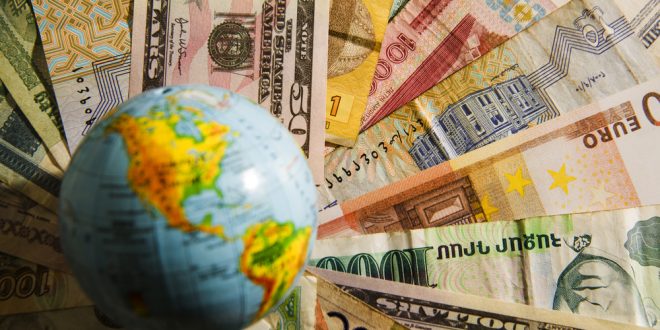Wagner Group mutiny provided temporary support to equity markets, but the fundamental pressure continued to crumble. Stocks experienced a momentary lift, but the economic slowdown in the USA and higher rates caused lower prices later. A correction in US equities is likely due to more than just a technical issue.
The United States imposed sanctions on four companies linked to the Russian private mercenary group Wagner and its leader, Yevgeny Prigozhin, that it said are active in illicit gold mining and trade.
Investors are advised by pessimists to prepare for a recession that will be more severe than what Fed Chair Powell anticipates. According to Fed Chair Jerome Powell, the US won’t reach 2% inflation again until at least 2025. These comments imply that the US central bank’s battle against inflation is far from done and highlight the potential for impending interest rate hikes. For equities, which have risen on hopes that the Fed is nearing the end of its cycle of monetary tightening, higher rates won’t be good news.
For the first time since last spring, the US monetary authority held rates steady in June, but it also hinted that it might increase them twice more before the year is up.
Thanks to the Fed’s efforts to reduce pricing pressures, US inflation has been steadily dropping in recent months. Despite slowing to 4% in May from a 40-year peak of 9.1% hit in mid-2022, the annual rate of consumer price increases is still twice the central bank’s target.
Excluding food and energy, the personal consumption expenditures price index, a measure frequently followed by the Fed, grew by 0.3% for the month, which was in line with the Dow Jones forecast. Core PCE climbed 4.6% from a year earlier, which was less than anticipated by 0.1 percentage point. The index increased by 4.7% from a year ago and 0.4% for the month of April.
Apple
Apple made history Friday by becoming the first publicly-traded U.S. company to end a trading day with a market cap of more than $3 trillion, but changes could be coming to its credit card offering.
Apple launched the Apple Card through a partnership with Goldman Sachs in 2019. This spring, the arrangement expanded to allow consumers with Apple Card accounts to access high-yield savings accounts with Goldman Sachs.
Oil Price
Changing expectations for interest rates were the major factor dictating how oil prices would behave. On Tuesday, oil prices fell more than 2% on indications that central banks may not be finished raising interest rates, as well as lower U.S. crude and petrol stocks during the busiest summer driving season, according to industry statistics. At $72.26 a barrel, Brent crude futures closed down $1.92, or 2.6%. Futures for US WTI crude fell $1.67, or 2.4%, to $67.70. The price range for both contracts has been traced back to $10 since early May.
Gold Price
The price of the gold spot index, XAU/USD, increased by around 0.50% on Friday, rising close to $1,920. A drop in US rates and a weakened US Dollar as a result of weaker US personal consumption expenditures helped the yellow metal. Additionally, wagers on the upcoming Federal Reserve (Fed) decision, which will have an effect on significant labour market statistics to be announced next week, will decide the short-term trend of the gold price.
US Dollar
The inflation report issued by the Department of Commerce continues to put pressure on the US dollar. The Core PCE, the preferred inflation indicator of the US Federal Reserve (Fed), slipped from highs of around 4.7% YoY to 4.6% in May, while the headline PCE decelerated at a quicker rate, with monthly data falling to 0.1% from 0.4% in April and annualised statistics at 3.8% from 4.4%.
ECB Forum
During the ECB Forum, Bailey, Lagarde, and Powell all discussed the persistence of inflation and how the ECB is adjusting its policies in response to the strength of recent underlying prices. The ECB will need to be as persistent as the inflation, according to Lagarde, Powell said the Fed plans to tighten further, and Bailey said the BOE’s decision to raise interest rates by 50 basis points earlier this month was motivated by high inflation.
The three central bankers also stated that their organisations are now operating on a meeting-by-meeting basis and considering facts when determining the best course of action. Lagarde emphasized that the ECB will likely increase interest rates once again in July, but she did not specify how much.
In spite of the fact that underlying inflation in Japan is still around 2%, Governor Ueda stated that the BOJ is prepared to change course, possibly even this year, if there are any evidence that it would start to rise in the coming year.
The four countries share a common feature of tight labour markets and robust consumption. The central bankers stated that even if they are closely monitoring their individual economies, they do not necessarily believe that their aggressive policy tightening would result in a recession as the most likely conclusion. They all emphasised their commitment to carrying out their inflation mandates, with Powell pointing out that this is what the public expects of central banks.
US equities edged higher as the central bankers spoke, with the S&P 500 and Nasdaq 100 briefly hitting session highs before paring back. US Treasury yields were slightly lower across the curve, and Bloomberg’s gauge of dollar strength rose to an intra-day high on Friday.
Also Read:
 Noor Trends News, Technical Analysis, Educational Tools and Recommendations
Noor Trends News, Technical Analysis, Educational Tools and Recommendations





